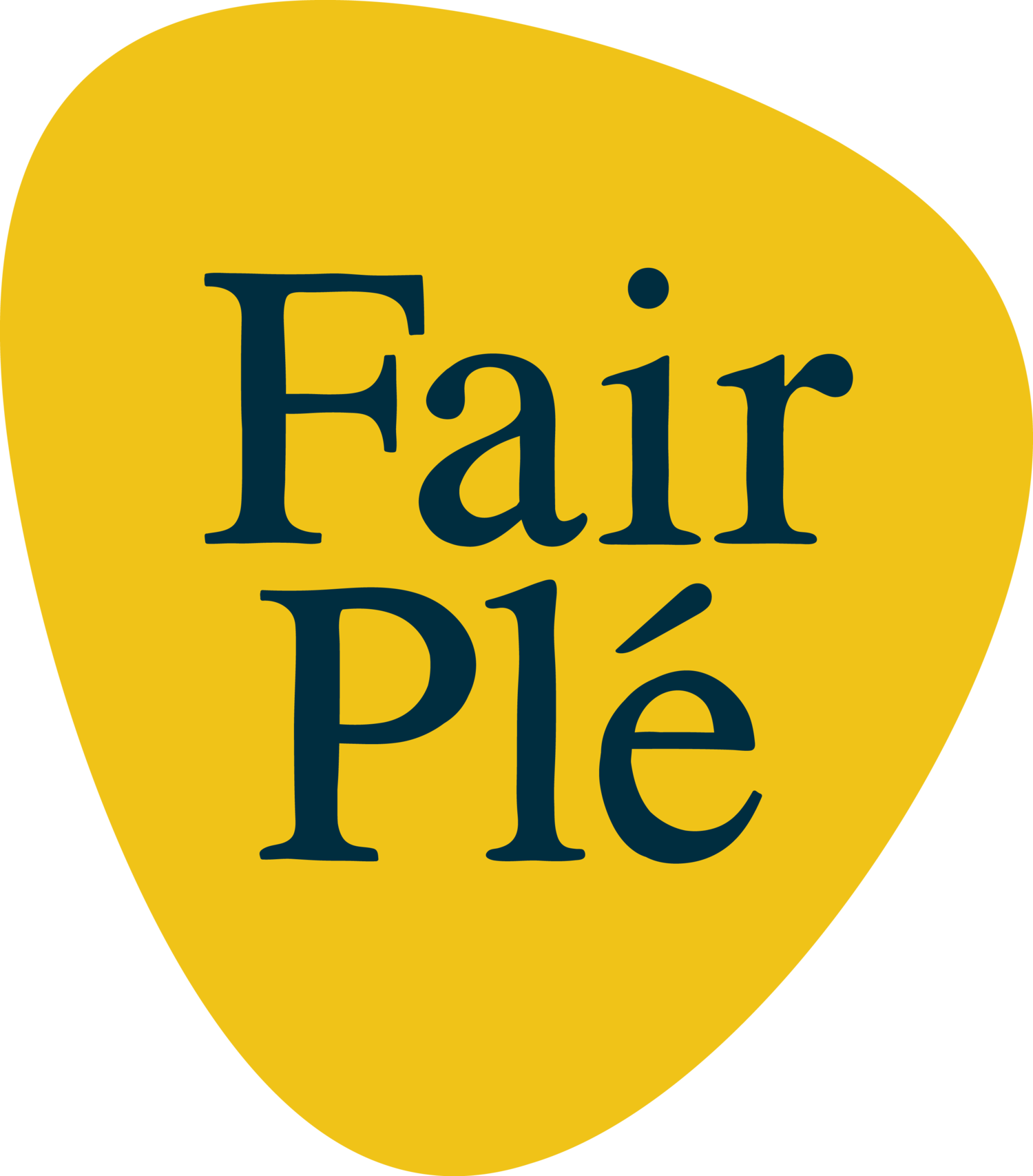FAQs
What does FairPlé do?
We raise awareness about gender inequality within the traditional and folk music scene. In doing so, we hope that musicians, participants and festival organisers alike can begin to recognise gender bias and strive towards creating a more equal space for all musicians. Through activism days, workshops and research, FairPlé actively advocates for gender balance and equal representation within the scene as well as highlighting key issues such as harassment and misconduct.
Our online directory of women performers of Irish traditional and folk music provides a valuable resource for booking agents and festival organisers. We hope that increasing the visibility of women performers to producers/ promoters will get women more gigs, provide role models for aspiring artists in the sector, and therefore encourage more women to pursue a career in music.
For more information and insight into events, activism days, conferences and activities organised by FairPlé see “The Activism of FairPlé” report and “events”.
Although we advocate for women, we are an inclusive organisation seeking equality for all genders, allowing for non-binary and non-essentialist understandings of gender.
Why is Fair Plé needed?
FairPlé is needed as there is a clear under-representation of women involved in the folk and traditional music performance sectors, be it on stages, on the festival circuit, behind mixing desks, or in sessions. The traditional and folk music scene is a relatively male-dominated arena. We want to see this change.
There is also a serious level of injustice, misconduct, and harassment that must be addressed. Úna Monaghan’s collection of 100 Stories: Perspectives on Gender and Irish Traditional Music analyses and archives the experiences of performers who have encountered inequality in the scene, ranging from unwanted sexual comments to serious sexual assault. The #MiseFosta/ #MeToo movement, recently highlighted on RTÉ’s Prime Time, has seen women bravely share their stories of misconduct, abuse and harassment in order to raise awareness of the extent of the problem. In doing so, these women strive towards creating a safer environment for all musicians whilst encouraging others to speak up and stop inappropriate behaviour when they encounter it or see it. FairPlé is needed to raise awareness about such issues, advocate for change, and in doing so, help create a safer and more equal space for all participants. While some people have had only positive experiences performing or participating in the scene, that is not the case for all and we ask that people be mindful and respectful of everyone’s individual experience.
Where is the evidence that there is a lack of gender balance?
Scholars such as Tes Slominski (2010; 2020), Helen O’Shea (2008) and the recent TG4 documentary series Mná An Cheoil have provided extensive data on the state of the scene from the early 20th century to date, highlighting issues of gender inequality, bias and stereotyping. Research containing statistical analysis and ethnographic studies pertaining to gender and the Irish traditional/ folk music scene have been presented at the following research symposiums: Sounding the Feminists Symposium: Women in Popular & Traditional Music in Ireland (Dundalk Institute of Technology, 23 November 2018) and Women and Traditional | Folk Music Research Symposium (NUI Galway’s Centre for Irish Studies, 9th February 2019). Reviews of these symposiums can be found in the recent edition of Spéis (2019 / 2020), an ICTM bulletin edited by Stephanie Ford.
A journal of symposium proceedings from NUIG’s Women and Traditional | Folk Music Research Symposium is available in Ethnomusicology Ireland, ICTM journal issue 7 (March 2021). Edited by: Verena Commins, Síle Denvir, Úna Monaghan and Méabh Ní Fhuartháin, this journal contains important research on women and traditional/folk music. Additional statistics pertaining to gender and Irish traditional music can also be found on Úna Ní Fhlannagáin’s website. [i]
Isn’t this really about women wanting more gigs? How is that fair?
As outlined in the research above, more girls than boys learn Irish traditional music; women are just as successful as men in senior Irish trad competitions; more women than men study Irish traditional music at 3rd level - and yet, women are significantly outnumbered in stage performance.
Women are also under-represented on radio, and in production, sound engineering and promotion.
This is a vicious cycle; ‘if you can’t see it, you can’t be it’.
Therefore, one aspect of FairPlé’s work is to advocate for more gigs for women musicians.
If agents hire more women, we will begin to see a more gender-balanced scene. Our online directory lists a fantastic array of women performers, therefore giving agents and promoters up-to-date information to achieve a gender balanced line-up or festival.
Compiled by Úna Ní Fhlannagáin, Deirdre Mulligan and Joanne Cusack.
[i] Bibliography:
Commins, Verena et al. eds (2021) Ethnomusicology Ireland (7): 1-155.
O’Shea, Helen –
(2008) ‘Good man, Mary!’ Women musicians and the fraternity of Irish traditional music. Journal of Gender Studies 17 (1): 55–70.
(2008) The Making of Irish Traditional Music. Cork: Cork University Press.
Slominski, Tes –
(2010) Music, Gender, and the Public Sphere in Twentieth-Century Ireland. Ph.D. New York University, New York.
(2020) Trad Nation: Gender, Sexuality, and Race in Irish Traditional Music. Connecticut: Wesleyan University Press.
Monaghan, Úna (2019) 100 Stories: Perspectives on Gender and Irish Traditional Music. Self-published.
TG4 (2019) Mná an Cheoil, (6 part music series)
Ford, Stephanie ed. (2020) Spéis, ICTM news bulletin.

